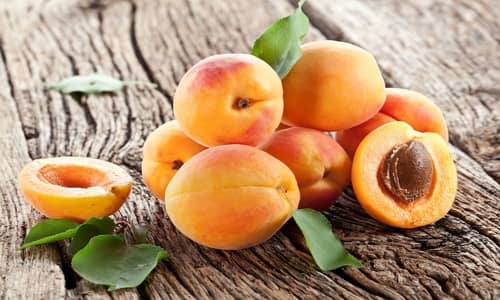Apricot 11 Benefits, Side Effects, Uses - Good for Skin
Apricot Nutrition

| Apricot (100g) Nutrition | |||
| Carbohydrate | Protein | Fat | Calories |
| 12g | 1.8g | 0.1g | 51kcal |
| Main Nutrition | Beta -carotene, vitamins A, C, E, potassium, iron | ||
| Main Benefits | Promoting skin health and prevention of constipation, improving liver health | ||
| Side Effects | If you are a kidney stones, consult with a specialist before eating | ||
In the apricot trees, I call the round fruit apricot. It ripens yellow in June -July and has a sweet and sour taste. The less ripe apricot is sour. There is a seed in the apricot fruit, and the flesh is light and fragrant. Low calories and nutritious apricots are eaten alone, but they can be eaten with juice or juice. Oil is extracted from apricot seeds and also used as cosmetics.
Apricot Benefits
1. Skin health
The apricot contains vitamin C and vitamin E. These two ingredients act as antioxidants in the skin. Antioxidants can prevent aging and protect cells.
In particular, it is possible to maintain healthy skin by promoting damaged skin cell regeneration from ultraviolet rays or preventing wrinkles from aging.
2. Venue health
Apricot is rich in fiber. This fiber is a special fiber, which helps the digestive tract to maintain sufficient moisture, allowing the intestinal beneficial bacteria to be produced.
3. Liver health
Antioxidants such as beta -carotene and flavonoids can reduce liver fatigue. It helps to detoxify the liver and supports the tired liver function to maintain a healthy state.
4. Eye health
Vitamins A and E in the apricots help your eye health. Vitamin A plays an important role in preventing night blindness and maintaining vision, and vitamin E prevents retinal cell damage and makes eye health healthy.
5. Cardiovascular health
The apricot contains potassium. Potassium acts to control and maintain the balance of sodium in our body. Appropriate harmony of sodium can help prevent cardiovascular diseases such as high blood pressure, arteriosclerosis or myocardial infarction.
6. Blood circulation improvement
Powerful antioxidants, beta -carotene, vitamin C, and potassium, play a very important role in vascular health. It can discharge waste products in the blood vessels and promote blood circulation.
7. Anemia prevention
Lack of iron causes a problem with oxygen supply, causing anemia. Among many fruits, apricots have high iron content, which can prevent and improve anemia by periodic intake.
8. Prevention of constipation
Rich fiber not only helps intestinal health, but also prevents constipation. It can soften stool and facilitate bowel movement.
9. Stomach health
High fiber stimulates gastric juice and digestive fluid to help digestion. This can disassemble food in the body and prevent various diseases such as acute gastritis and stomach ulcers.
10. Improvement of immunity
Powerful antioxidants, rich vitamins are effective in improving physical immunity. It can block the harmful bacteria flowing into the body and greatly strengthen the immunity.
11. Diet
The apricot is only 20 calories in 100g, but it gives a high sense of satiety. If you eat it as a nutritious snack in a diet diet, you will make your diet easily.
Apricotjam How to make
Apricot How to eat
Apricots can be very diverse with sweet and delicious fruits. If you don’t know how to eat it, see the following method!
- You can eat the flesh raw or make a smoothie.
- If you eat it with plain yogurt, it becomes a sweet apricot yogurt.
- It goes well with meat dishes. If you eat it with pork, it can be a good food.
- It can be made of apricot jam or apricot, which is a sweet time.
Apricot Side Effect
- The apricot contains the ingredients called Amygdalin. This can cause side effects such as respiratory disorders if it is overdose as a toxic substance.
- Excessive intake may cause side effects such as abdominal pain, upset, and diarrhea.
- The apricot contains an ingredient called oxalic acid, which can adversely affect people with kidney stones, so it is safe to consult a doctor before eating.
Apricot FAQ
Can I eat apricot peel?
Yes. It is a fruit that can be eaten as shell. The shell is rich in antioxidants, which can have a better effect.
When is the apricot season?
From June to July. The sweetest and delicious time is soft.